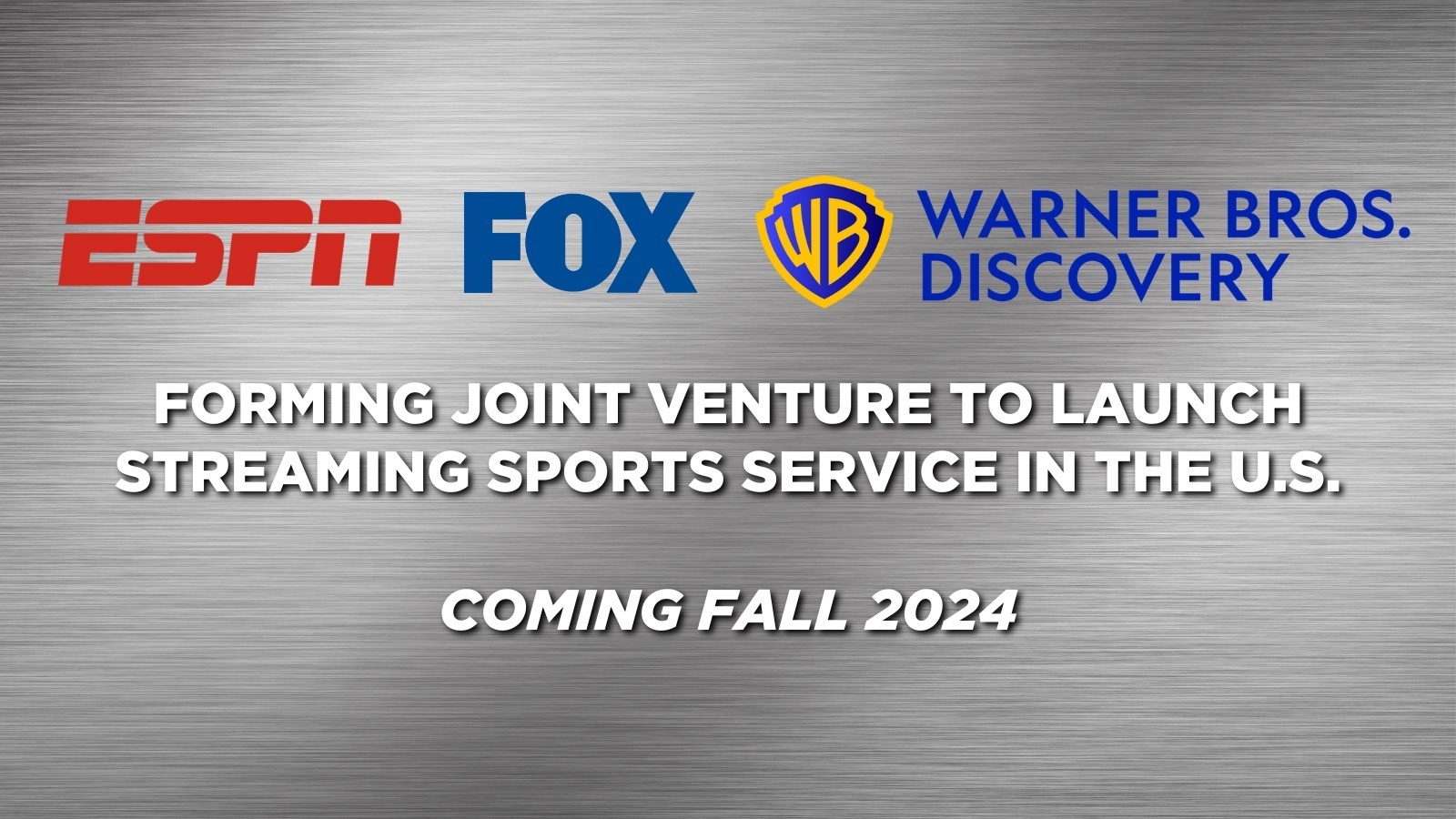New Sports Streamer Raises Old Financial Issues for Stations & Affiliates
The Disney/Fox/WBD sports streaming JV raises old questions about how deals with streamers are negotiated and the potential impact of cord-cutting on station groups

In recent days, the new super sports streaming service from Disney/Fox/WBD has raised some old and potentially upsetting questions about the financial future of local broadcasting and the way deals with streaming services are negotiated.
In the wake of the announcement, station group stocks fell on Wall Street as investors seemed to be betting that the ESPN, Fox and Warner Bros Discovery joint venture would accelerate the decline of the pay TV industry and that the new streaming service would reduce retransmission revenues for local broadcasters.
Less obviously, but equally important, the launch of the new streaming service also raised the old and increasingly thorny issue of how companies negotiate fees for content from streaming services.
Currently this is done by companies like Disney and Fox that own broadcast networks. Station groups say this reduces their revenue and the amount of fees they can charge vMVPDs and streamers for the content they air. They want the FCC to change that, which currently seems unlikely.
In response to the streaming service, both Gray Television and Scripps have stressed the importance of their stations being paid for offering content on the new service.
In a statement released to investors, Gray Television laid out the issues fairly indirectly by saying it “welcomes any venture that expands the reach of local broadcasting stations, which in turn supports the ability of local stations to maintain trusted local news operations that benefit everyone.”
Gray also noted that it wants to get “additional resources” from the venture and stressed the important role that affiliates will play in the success of the venture.
The professional video industry's #1 source for news, trends and product and tech information. Sign up below.
“The potential launch of a new live streaming service from Disney, Fox, and WBD that would include the live signals of the local affiliates of the ABC and Fox broadcast networks owned by local broadcasters such as Gray as well as those companies’ sports-focused cable channels could be a significant opportunity to expand the pay-TV ecosystem," Gray said. "Local affiliated stations not only carry nationally televised sports but also provide local sports coverage, local news and weather, local jobs and extensive community service. We believe that including ABC and Fox stations in a new virtual multichannel video programming service could offer benefits to viewers, their local communities, and local broadcasters.”
“Local affiliates and their audiences could also benefit if the venture provides additional resources and scale [italics added] that enables the venture to compete successfully and expand the sports programming available on the ABC and Fox broadcast networks and the affiliates of those networks,” Gray said.
This is the kind of language stations have been using in their arguments with the FCC that vMVPDs should be reclassified as pay TV operators so the station groups–not the networks–can directly negotiate deals with companies like YouTube TV and Fubo.
EW Scripps CEO Adam Symson laid out the issue more directly in an interview with CNBC. He stressed that he had received assurances from Disney that the affiliates would be included in the streaming service and that they would be paid.
“Affiliates are going to be compensated for being carried along,” Symson told CNBC.
How this will work out in a very complex joint venture that will involve three giants in the media and entertainment industry and includes streams for access to ESPN, ESPN2, ESPNU, SECN, ACCN, ESPNEWS, ABC, Fox, FS1, FS2, BTN, TNT, TBS, truTV, as well as ESPN+ is open to question, however.
Another major question will be its longer term impact on the pay TV industry, which currently produces about half the revenue for local broadcasters. Disney and Fox executives this week both stressed that it wouldn’t accelerate cord cutting. But the industry has a long history of under-estimating the impact of new media. Stay tuned.
George Winslow is the senior content producer for TV Tech. He has written about the television, media and technology industries for nearly 30 years for such publications as Broadcasting & Cable, Multichannel News and TV Tech. Over the years, he has edited a number of magazines, including Multichannel News International and World Screen, and moderated panels at such major industry events as NAB and MIP TV. He has published two books and dozens of encyclopedia articles on such subjects as the media, New York City history and economics.

